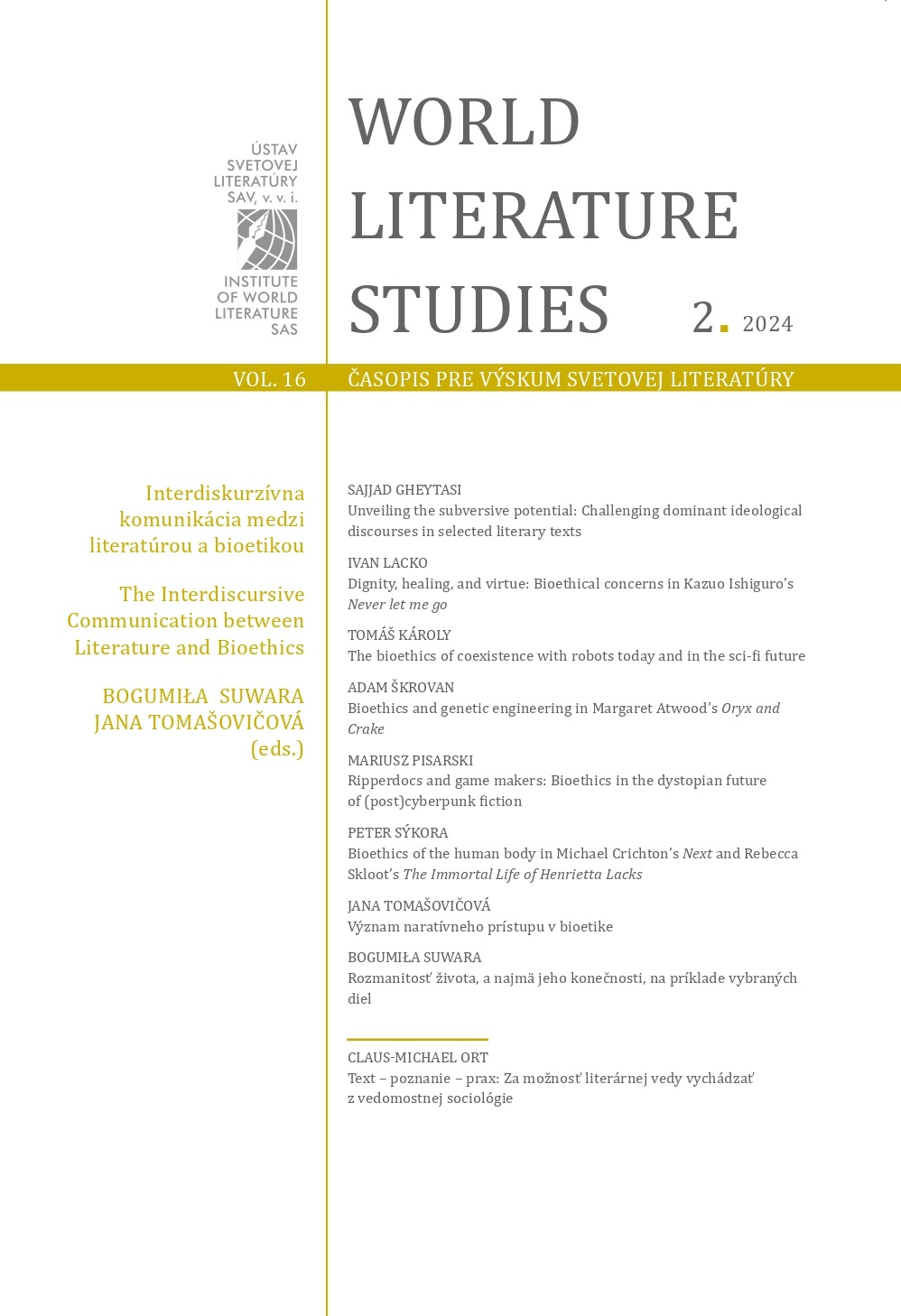Význam naratívneho prístupu v bioetike
The relevance of the narrative approach in bioethics
Author(s): Jana TomašovičováSubject(s): Language and Literature Studies, Studies of Literature, Ethics / Practical Philosophy, Philosophy of Mind, Philosophy of Science, Sociology of Literature
Published by: Ústav svetovej literatúry, Slovenská akadémia vied
Keywords: Interdiscursive research between literature, ethics and bioethics; Methodological pluralism; Narrative approach; Narrative imagination; Reflective equilibrium
Summary/Abstract: Methodological pluralism is a characteristic feature of contemporary bioethics. Within interdiscursive research, a narrative approach has gradually emerged as part of a broader ethical reflection. This article aims to explore the relevance of the narrative approach in bioethics, where it is gaining a place alongside traditional normative approaches. After first analyzing two initiatives that have influenced the reflection on the inclusion of the narrative method in bioethical discourse, it focuses on an analysis of selected works by Martha C. Nussbaum, which explores the influence of narrative imagination on moral reasoning against the backdrop of the dialogue between literature and ethics. It also examines the method of reflective equilibrium, through which Nussbaum attempts to incorporate moral beliefs and intuitions gained through narrative-ethical analysis of literary works into the making of moral judgments. The last section of the article presents four of the most prominent forms of narrative representations in bioethics, against which the relevance of the narrative approach in bioethics can be assessed.
Journal: World Literature Studies
- Issue Year: 16/2024
- Issue No: 2
- Page Range: 78-88
- Page Count: 11
- Language: Slovak

